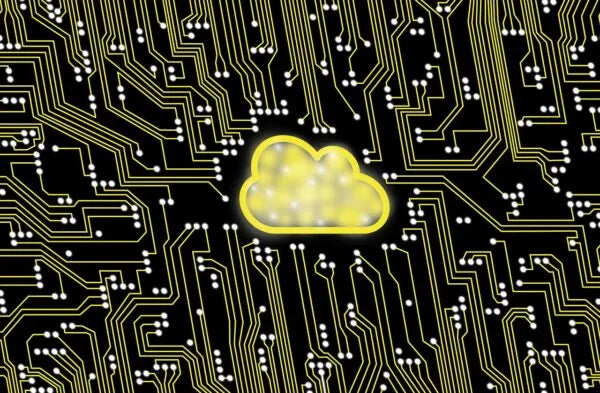
Tidying Up Your Digital Space: Simple Steps to Reduce Digital Waste
Share
Do you ever run out of space on your phone or your computer because of too many photos, videos and documents? or do you find your email overflowing with promotional emails that you will never read? We've all been there!
But did you know this digital clutter is like a type of trash called "digital waste"?
Digital waste, simply put, is just all that useless stuff, like old pictures, extra files, and unwanted emails, that piles up on our devices and online. Unlike regular trash we throw away, we often forget about this digital mess, and it keeps growing!
Nowadays we can store a ton of stuff in the cloud, making it super easy and cheap. But well, it turns out there's a little downside to it – it's not all sunshine and rainbows. Storing data actually has a carbon cost, like a sneaky environmental fee.
Let's break down the Digital Mess problem
Here's the surprising part: this digital waste isn't just annoying; it's also bad for the environment. It adds to the carbon dioxide emissions, and contributes to global warming.
100 unnecessary emails can pollute as much as 125 light bulbs, according to experts. Accenture
Digital waste is, basically the carbon footprint of storing data in a not-so-smart way. It's like having a messy room, but in the digital world. It includes all kinds of badly managed data – stuff that's just sitting there taking up space, unused, redundant, or even just plain wrong because someone goofed up.
Now, about the energy part – storing data needs power, and it's not a small amount. Imagine saving 100 gigabytes of data in the cloud – that's like posting a bunch of photos and videos. Well, doing that adds up to around 0.2 tons of carbon dioxide every year. It's not as much as what a car spits out, but for big businesses dealing with massive amounts of data, it starts to make a dent.
Back in 2016, the average business stored a whopping 347.56 terabytes of data. If they kept all that data hanging around, it would be like releasing nearly 700 tons of carbon dioxide into the air every year. That's a lot, right?
And talking about big numbers, in 2023 we generated 120 zettabytes of data, that is: 1021 (1,000,000,000,000,000,000,000) bytes. I don't know you but i have trouble making sense out of so many zeros!
So, while cloud storage is super handy, we need to be aware that it's not just about convenience – there's a carbon cost involved. Let's try to keep our digital spaces neat and tidy to help out the planet a bit. What do you think about that?
How does data become digital waste?

Storing data, especially, large amounts of data, requires enormous storage devices. These physical devices run mostly 24/7 which in turn requires even more power, for all the hardware and support components needed to prevent system burnout like cooling fans and fire suppression systems.
More data means more storage devices and support systems. More devices mean more electricity requirements and power consumption. These in turn produce carbon emissions that contribute to global warming, climate change and the planet's health.
How can you help combat data waste on an individual level?
Of course, the biggest contributors to Digital Waste are big companies and Networks but we cannot ignore our responsibility, because the cumulative effect of what each of us does, is also very significant.
The good news is that there are many little things that you can do to reduce your own Digital Mess and keep your Digital Space clean and lean. Check our suggestions below:
- Empty regularly that trash bin from your online mailbox and gallery. Also, delete the spam, promotional emails and messages that you don't need regularly. You could set yourself some calendar reminders to do this at regular intervals. That is in fact what we do as a team at Green Cloud Nine. It is calculated that one newsletter emits around 10 g of carbon dioxide!
- Review regularly your files and folders on cloud storage and personal drives and delete anything that you no longer need to free up space.
- Check out your social accounts to see if there is something that you can delete. Also, limit the time you use digital devices and social media.
- Remove applications from your devices and close browser windows when you are not using them.
- Choose dark mode and reduce the brightness at which you use your devices. This can significantly reduce electricity consumption, CO2 emissions and your bills too.
- Practise to shut down and unplug your devices when your work is done. They also need a break, you know!
- Try not to use screensavers on your devices. Turn off the screens instead.
- Change your settings to enable sleep mode after a short amount of inactivity.
- Use a wifi network instead of using cellular data to reduce carbon emissions. The latest technology requires the least amount of energy.
- Disable the connectivity options like Bluetooth and Airdrop when not required.
- Use a digital detox or digital cleaning application if you are not able to manage it on your own.
- When choosing cloud applications, look for those that already manage and compensate for their CO2 emissions.
What if we do not become responsible towards our data use?

The trend of digitalization of documents, Artificial Intelligence, and remote work keeps going up, so if we do not make any changes to our behaviour, experts foresee that the amount of carbon emissions these activities create could possibly cause a rebound effect.
In theory, digital utilisation could have a positive impact on carbon emissions as it reduces the need to travel and the workplace infrastructure would require less energy. However, in reality, at the rate that digital consumption is increasing, it is projected, that the total digital energy consumption and carbon emissions will be the same or even higher, compared to when we had to go to work every day.
So, we leave you with this food for thought and we hope you like our suggestions. Drop a comment if you found these useful.




